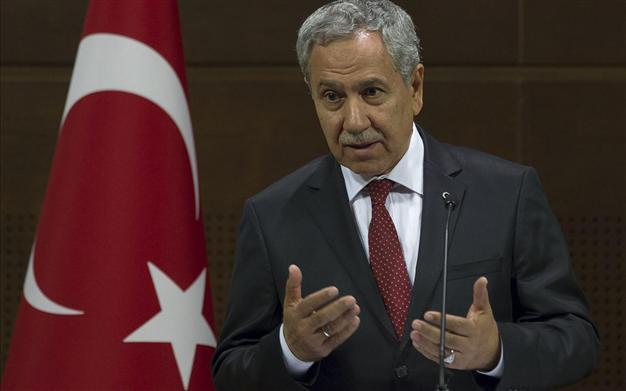Turkish gov’t allows headscarf for fifth graders, causing uproar
ANKARA

The step comes after the de facto removal of the headscarf ban in universities. AA Photo
The Turkish government has announced the lift of a ban on the headscarf in schools, allowing girls from the fifth grade and up to cover their hair in the public schools, drawing criticism from opposition parties.“The change applies to middle and high schools, not to primary schools,” Education Minister Nabi Avcı told reporters Sept. 23 in comments broadcast by private news channel CNNTürk. “Beginning with the fifth grade, everyone can practice this,” he added, making it clear girls older than 10-years-old will be allowed to cover their heads in the schools.
The government had already lifted a ban on the headscarf for university students and female civil servants in 2013, after years of pressure from its supporters.
“I know that particularly some of our female students have been yearning for it [the lift on the ban],” said Deputy Prime Minister Bülent Arınç on Sept. 22 when he announced the lift on the ban following a Cabinet meeting amid heated debates on compulsory religious education.
The step comes after the de facto removal of the headscarf ban in universities, in the aftermath of a long legal battle in 2008.
The Cabinet amended the regulation on students’ apparel, removing the legal provisions that stated students should “be bareheaded” during classes.
“When I gathered with students during the start of the academic year, they were waiting for this good news with excitement,” said Arınç, recalling his visit to Bursa last week.
However, the new measure has once more created controversy and debates, as opposition party deputies have shown fierce reactions to the move.
The main opposition Republican People’s Party (CHP) parliamentary spokesperson, Engin Altay, accused the government of bringing the headscarf issue onto the agenda whenever it faces problems.
“The headscarf is not an aspirin the government can take anytime it faces problems. I call on the government to cover their face in shame instead of covering girls’ heads,” said Altay at a press conference in Parliament, referring to the problems at Turkey’s border with Syria.
In a press conference, Nationalist Movement Party (MHP) Ankara deputy Özcan Yeniçeri also accused the government of using the headscarf as a means to increase votes.
“The headscarf should not be the fuel for the Justice and Development Party’s [AKP] votes. They should stop using religious symbols as a political means,” he said.
Meanwhile, unions warned the decision means a political intervention on education.
“Our society is being dragged into the Middle Ages by exploiting faith. Now, it’s the kids’ turn to [become the instrument] of politics using religion. This decision will cause trauma in this country because it uses secular education” said Kamuran Karacan, head of the teachers’ union Eğitim-Sen.
For his part, Veli Demir, head of the union Eğitim-İş, said they will legally challenge the amendments. He also claimed the government intended to “even insert religious symbols into kindergartens.” “The change in the regulation is contrary to the Constitution. Freedom only means headscarves for them. They are not seeking secular and scientific principles in educational institutions,” Demir said.
However, not all of the unions were against the reform.
Turkish Public Workers’ Labor Union (Kamu-Sen) President İsmail Koncuk argued the ban on headscarves should be lifted in order to avoid religion from becoming a political tool. “With the change of the regulation, secondary education institutions are no longer a space for the exploitation of religion,” Koncuk said.
Until now, only female students enrolled in vocational Islamic schools (imam-hatip) could wear headscarves during classes.
















